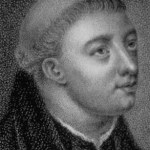Learning to love differently is hard,
love with the hands wide open, love
with the doors banging on their hinges,
the cupboard unlocked, the wind
roaring and whimpering in the rooms
rustling the sheets and snapping the blinds
that thwack like rubber bands
in an open palm.
It hurts to love wide open
stretching the muscles that feel
as if they are made of wet plaster,
then of blunt knives, then
of sharp knives.
It hurts to thwart the reflexes
of grab, of clutch ; to love and let
go again and again. It pesters to remember
the lover who is not in the bed,
to hold back what is owed to the work
that gutters like a candle in a cave
without air, to love consciously,
conscientiously, concretely, constructively.
I can’t do it, you say it’s killing
me, but you thrive, you glow
on the street like a neon raspberry,
You float and sail, a helium balloon
bright bachelor’s button blue and bobbing
on the cold and hot winds of our breath,
as we make and unmake in passionate
diastole and systole the rhythm
of our unbound bonding, to have
and not to hold, to love
with minimized malice, hunger
and anger moment by moment balanced.



















Comment form: